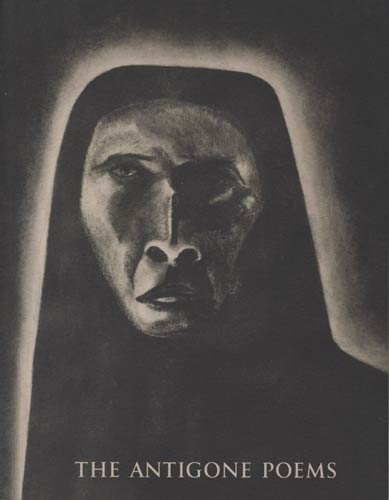The Antigone Poems
Ancient wound. Politicians, monarchs, and religious fanatics still use this phrase to justify vengeance. Its literary applications are no less tragic. To give a Pulitzer and Nobel winning example, Eugene O’Neill knew how to channel that fury and apply it to his highly ordered dysfunctional universe. Ancient wound. Politicians, monarchs, and religious fanatics still use this phrase to justify vengeance. Its literary applications are no less tragic. To give a Pulitzer and Nobel winning example, Eugene O’Neill knew how to channel that fury and apply it to his highly ordered dysfunctional universe.
With The Antigone Poems, Marie Slaight revisits the most ancient of ancient wounds: denial of a proper burial. In these poems written between 1972 and 1981, she gives the defiant daughter of the House of Thebes the soul that Sophocles could not. Greek drama, especially The Oedipus Trilogy of which Antigone is part of, has long been subject to psychological and literary interpretation. This is because the decision-making process behind rational or irrational behavior is unexplored. It also does not help that plot developments occur offstage. Shakespeare would take care to include both.
While not necessary, it is a good idea to read or re-read the original Antigone along with the Poems. Slaight describes direct references to essential information about Antigone:
Wrists bound in blood.
Chains
Burnt in anguish
Of daemon ancestry
Her uncle King Creon imprisoned her for performing outlawed funeral rites for her brother Polyneices. Creon considers his nephew an enemy of the state for raising an army against Thebes. . . despite Polyneices’s genuine claim on the throne. He and his brother Eteocles were to share power, but Eteocles wanted to rule alone; hence, the two killed each other in battle. What outrages Antigone is that Eteocles has a funeral, while Polyneices is, according to Sophocles, “unburied, a lovely treasure for the birds that scan the field and feast to their heart’s content.”
Daemon is Greek for demon. Antigone is the daughter of King Oedipus and Queen Jocasta, who were mother and son, husband and wife. While an outcast and—something far worse in Ancient Greece—a woman, Antigone is loyal to her family and looks past the circumstances of her birth. The young woman personifies her name, which translates as “worthy of one’s parents.” Her uncle and fellow Thebans cannot overlook this; perhaps readers and theatregoers cannot either. Incest is a red flag, an uncomfortable subject, and her family history is public knowledge. “I only want to purge of godawful pain—so close to losing me,” Slaight’s Antigone exclaims. The unthinkable has a face and voice, and in purging finds the courage to defy convention and challenge authority.
Slaight is also able to look past the family curse and symbolically apply Antigone’s situation to all women. She accomplishes this with dramatic lines like, “In exile / I carry screams / I seek revenge / I await my return,” and with more universal, yet deeply articulate, ones:
I feel betrayed—by what—no words—I only try so as to fill the gap
whirling’s fast, stronger now—I need someone to hold me—so I can
hold it—my hurting proves nothing, only that he has the power to pain
The successful balancing of the ancient and contemporary receives reinforcement in Terrence Tasker’s illustrations. His bold charcoal illustrations of Greek masks, Egyptian relics, and a modern-dress Greek chorus could be Everywoman.
The primary conflict of Antigone is between uncle and niece. Sophocles’s dislike of Creon is so prevalent that the despot king comes across buffoonish. As their conflict escalates, Creon grows weaker while Antigone grows stronger. Her evaluation of him and their situation is a timeless family feud:
And this lord and I
We fight
Over every dollar spent
With the revulsion
Of displaced and dying aristocracy
Still, that does not stop him from ordering Antigone buried alive for her crime.
“The daemon / The essence / The disorder / I hold sacred” is the theme of The Antigone Poems. Marie Slaight also provides this troubled, tragic woman with the voice to scream it out loud.





